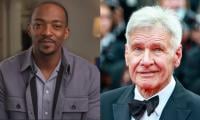The United Arab Emirates (UAE) stands as a testament to visionary leadership, transforming from a modest federation of desert communities in 1971 into a global powerhouse in just over five decades. Behind this transformation lies the foresight, determination, and innovative spirit of its leaders, whose strategic decisions have shaped the UAE into a beacon of prosperity, progress, and resilience. The role of leadership in the UAE’s meteoric rise and its sustained success is pivotal.
Foundational vision: Sheikh Zayed bin Sultan Al Nahyan
The UAE’s success story began with its founding father, Sheikh Zayed bin Sultan Al Nahyan, the first President of the UAE. Sheikh Zayed’s vision extended far beyond uniting the emirates into a single federation; he dreamed of creating a modern, inclusive nation.
• Unity and Diplomacy: Sheikh Zayed was instrumental in uniting the seven emirates, fostering cooperation and overcoming tribal rivalries to form a cohesive federation. His diplomatic acumen extended to foreign relations, establishing the UAE as a neutral and peaceful player on the global stage.
• Resource Management: Understanding the value of oil wealth, Sheikh Zayed prioritized its use for national development. He invested heavily in infrastructure, healthcare, and education to ensure long-term prosperity for his people.
• Environmental Stewardship: A pioneer in sustainability, Sheikh Zayed implemented initiatives to combat desertification and preserve the natural environment, laying the groundwork for the UAE’s modern green agenda.
Strategic vision of modern leaders
The leadership of the UAE’s subsequent rulers has built upon Sheikh Zayed’s foundation, propelling the nation to greater heights.
Sheikh Mohammed bin Rashid Al Maktoum (Vice President and Prime Minister of the UAE, and Ruler of Dubai)
Sheikh Mohammed’s visionary leadership has been instrumental in positioning Dubai as a global hub for business, tourism, and innovation.
• Economic Diversification: Sheikh Mohammed spearheaded Dubai’s transition from an oil-dependent economy to one driven by trade, tourism, finance, and technology. Iconic projects like the Burj Khalifa, Dubai Mall, and Palm Jumeirah exemplify his ambition and ability to execute transformative initiatives.
• Global Connectivity: Under his leadership, Dubai became a global aviation hub through Emirates Airlines and the development of Dubai International Airport.
• Innovation and Technology: Sheikh Mohammed has championed technological advancement, launching the UAE Artificial Intelligence Strategy 2031 and establishing Dubai as a smart city.
Sheikh Mohamed bin Zayed Al Nahyan (President of the UAE and Ruler of Abu Dhabi)
As a leader, Sheikh Mohamed bin Zayed focuses on sustainability, security, and innovation, ensuring the UAE’s resilience in a rapidly changing world.
• Energy Transition: Sheikh Mohamed has prioritized renewable energy, overseeing projects like Masdar City and the Barakah Nuclear Energy Plant. His leadership drives the UAE’s commitment to achieving net-zero emissions by 2050.
• Strategic Global Partnerships: Sheikh Mohamed’s diplomacy has strengthened the UAE’s ties with major global powers, fostering economic and political stability.
• Human Development: Education and healthcare reforms under Sheikh Mohamed reflect his commitment to equipping citizens for future challenges.
Key Leadership Qualities Driving Success
The UAE’s leaders have demonstrated several distinct qualities that underpin their achievements:
• Visionary Thinking: UAE leaders consistently anticipate future challenges and opportunities, enabling them to stay ahead in a competitive world.
• Pragmatism: Despite their ambitious goals, UAE leaders balance innovation with practicality, ensuring that projects are sustainable and economically viable.
• Inclusivity and Diversity: The UAE’s leadership fosters an inclusive society that embraces expatriates, with over 200 nationalities living and working harmoniously.
• Resilience in Crisis: During the COVID-19 pandemic, the UAE’s leaders showcased exemplary crisis management through swift vaccination drives and economic recovery plans.
Achievements Under Visionary Leadership
• Economic Growth: The UAE has one of the most diversified economies in the Middle East, with non-oil sectors contributing significantly to GDP.
• Global Hub Status: Cities like Dubai and Abu Dhabi are now synonymous with luxury, innovation, and global connectivity.
• Space Exploration: The UAE became the first Arab country to send a mission to Mars with the successful launch of the Hope Probe in 2020.
• World-Class Infrastructure: The UAE boasts some of the world’s most iconic landmarks and cutting-edge infrastructure.
The Future: Sustaining the Legacy
The UAE’s leaders continue to adapt their strategies to meet emerging global challenges. Initiatives like the UAE Centennial 2071 plan aims to position the country among the world’s most developed nations over the next five decades. The leadership’s focus on youth empowerment, technological advancement, and environmental sustainability ensures that the UAE remains a leader in innovation and progress.
Conclusion
The UAE’s remarkable journey from desert sands to global prominence is a testament to the power of visionary leadership. From Sheikh Zayed’s foundational foresight to the modern leaders’ innovative strategies, the UAE’s success underscores the importance of governance driven by a clear vision, inclusivity, and adaptability. As the nation celebrates its National Day, it serves as a reminder that the UAE’s story is not just one of transformation but of leadership that inspires the world.
Sohail Anwar Sial says they have CCTV footage in which Abbasi's son and his friends are seen firing at his house
It is noteworthy that current bilateral trade volume between Pakistan and UAE stands at approximately $8 billion







